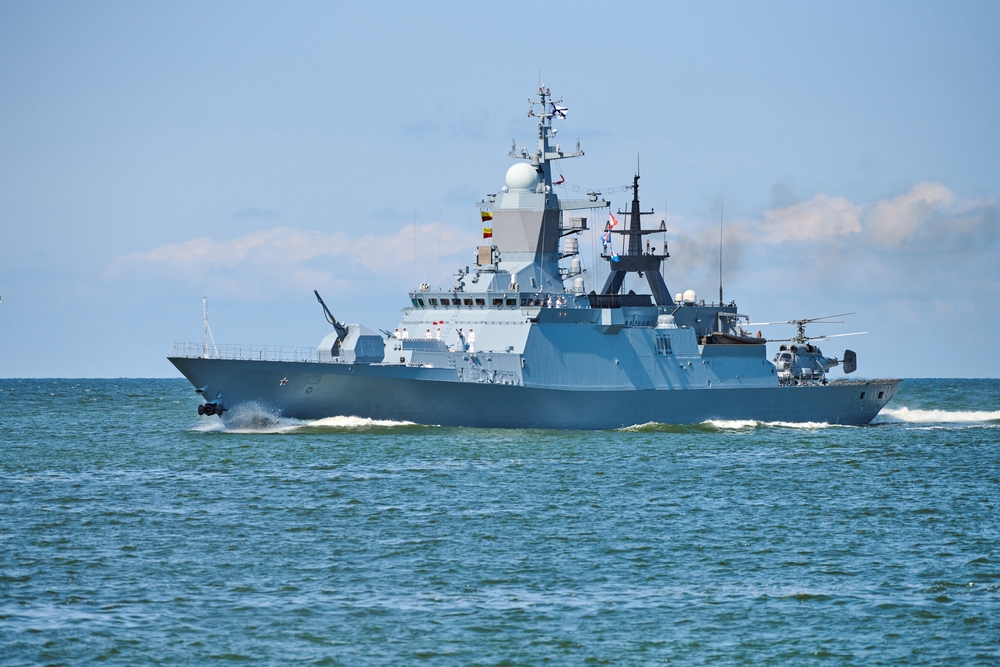These warships are largely inefficient in launching missile strikes and are being used as a distraction.
Others are reading now
Since the beginning of the invasion of Ukraine, Russian forces have used a variety of tactics aimed at confusing and overwhelming Ukrainian soldiers.
A Distraction
Their latest approach involves deploying a large number of missile cruisers, not for effective attacks, but rather to divert the attention of Ukraine’s air defenses.
According to Dmitro Pletenciuk, a spokesperson for the Ukrainian Navy, these warships are largely inefficient in launching missile strikes and are being used as a distraction during massive missile barrages.
In recent weeks, Russia has increased its missile strikes from the Black Sea and the Sea of Azov, targeting Ukraine’s southern Odesa region, according to Ziare.
Also read
These attacks have focused on port infrastructure and civilian vessels, often using bases in the Russian-occupied Crimean Peninsula. Moscow’s ships, especially those equipped with Kalibr cruise missiles, have played a key role in these operations, but their effectiveness remains questionable.
The Kalibr missile, a mainstay in Russia’s arsenal, has a range of up to 1,500 miles and is capable of hitting land-based targets. However, according to Pletenciuk, the actual performance of these missile systems when launched from Russian warships has been poor.
“Due to the low efficiency of these weapons systems, Russia is forced to use them more as a distraction for air defenses during large-scale missile attacks,” Pletenciuk explained during a national television broadcast.
Not Participating in Strikes
Russian submarines, which are also armed with Kalibr missiles, have been spotted at sea, but their role has shifted more toward base protection rather than participating in missile strikes. This suggests that Russia’s naval forces are being stretched thin, forcing them to use ships for tactical diversions rather than frontline assaults.
Since the onset of the full-scale invasion, Ukraine has inflicted considerable damage on Russia’s naval forces. Ukrainian military officials estimate that around 30% of Russia’s Black Sea Fleet has been destroyed or rendered inoperable. Additionally, successful Ukrainian strikes on Crimea, including drone attacks on Russian naval assets, have pressured Moscow to withdraw many of its remaining ships from Crimean waters. As a result, a significant portion of the fleet has been relocated to Novorossiysk, a port in southern Russia, which now serves as a key base for the fleet’s operations.
Despite the strategic importance of the Black Sea for Russia’s military operations, the limited success of their naval forces has forced them to adopt a more defensive and diversionary role. T


